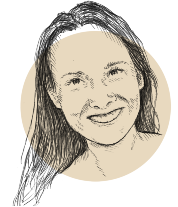One grew up in a small town in Normandy; the other comes from a village in the Somme, in Northern France. Both are from working-class backgrounds – her parents were greengrocers and café managers; his father was a factory worker and his mother was a homemaker. Born 52 years apart, in 1940 for her and 1992 for him, almost two generations lie between them. Yet many subjects and concerns connect Annie Ernaux and Edouard Louis, and the French see him as a direct descendent of the author of Happening and The Years. On several occasions, Edouard Louis has actually spoken of how much she influenced his writing, such as in a 2014 interview with weekly magazine Télérama: “Her books are so powerful because they offer a new image of what crafting a book really means. I have tried to use this question as a starting point in all my writing.” In 2013, Annie Ernaux took part in L’insoumission en héritage, a collective work directed by Edouard Louis paying tribute to sociologist Pierre Bourdieu, who theorized the distinction and reproduction of social hierarchies.
Defying class boundaries, Annie Ernaux and Edouard Louis are also connected by their hyper-realistic texts, which highlight the mechanisms of dominations at the crossroads of gender and social class. In A Woman’s Battles and Transformations, the author of The End of Eddy writes to his mother, Monique, as he reflects on his own background and the history of their complicated relationship. Upon finding a photograph of her at 20, an age at which she should have been “young and full of dreams,” he sees nothing but violence, poverty, and a body broken by years spent with brutal men who humiliated her. “Seeing the photo reminded me that those twenty years of devastation were not anything natural but were the result of external forces – society, masculinity, my father – and that things could have been otherwise,” writes Edouard Louis. Alternating between the third and second person, he portrays his mother’s courageous emancipation after he leaves home to go to college. In doing so, with his trademark blend of shamelessness, violence, and anger, he wields literature like a weapon, gladly turning his back on the established bourgeois models: “I’ve been told that literature should never resemble a political manifesto but already I’m sharpening each of my sentences the way I’d sharpen the blade of a knife.”
This statement was probably not random, as it echoes L’ écriture comme un couteau (“Writing as a knife”), a book of interviews between Annie Ernaux and author Frédéric-Yves Jeannet. “I bring something hard, heavy, and even violent into literature, tied to living conditions and the language of a world that was entirely my own until the age of 18; a working-class, rural world,” she says. “There is always something real. I feel that writing is what I do best, in my context and my situation outside of my class, as a political act and as a gift.” The U.S. release of Do What They Say or Else, her second novel, originally published in France in 1977, is especially interesting because it enables us to see how far the author has come. Hidden behind a mask of fiction, she follows the transformations of Anne, a high school student who has her first sexual experiences and dreams of “changing life.” By observing movements and table manners, by restoring a working-class language that gradually repulses the teenager, Annie Ernaux expresses the widening gap between Anne and her parents. While the language is not as dry and harsh as in her subsequent books, readers will recognize the themes that feature in her later work: the fear of getting pregnant in France before the legalization of abortion, class violence and all forms of domination, and her contradictory relationship with her mother.
“No one writes in the same way after reading Annie Ernaux,” said Edouard Louis following the recent French publication of her latest book Le jeune homme, a lucid depiction of an affair between the writer, then 54, and a 24-year-old student. By writing about their origins and the violence inherent to passing from one world to another, Annie Ernaux and Edouard Louis have dared to write against the dominant literary grain, to shine a light on other lives and other bodies that have been excluded until now.

Do What They Say or Else by Annie Ernaux, translated from French by Christopher Beach and Carrie Noland, University of Nebraska Press, October 2022. 120 pages, 17.95 dollars.

A Woman’s Battles and Transformations by Edouard Louis, translated from French by Tash Aw, Farrar, Straus and Giroux, 2022. 112 pages, 20 dollars.
Article published in the October 2022 issue of France-Amérique. Subscribe to the magazine.












